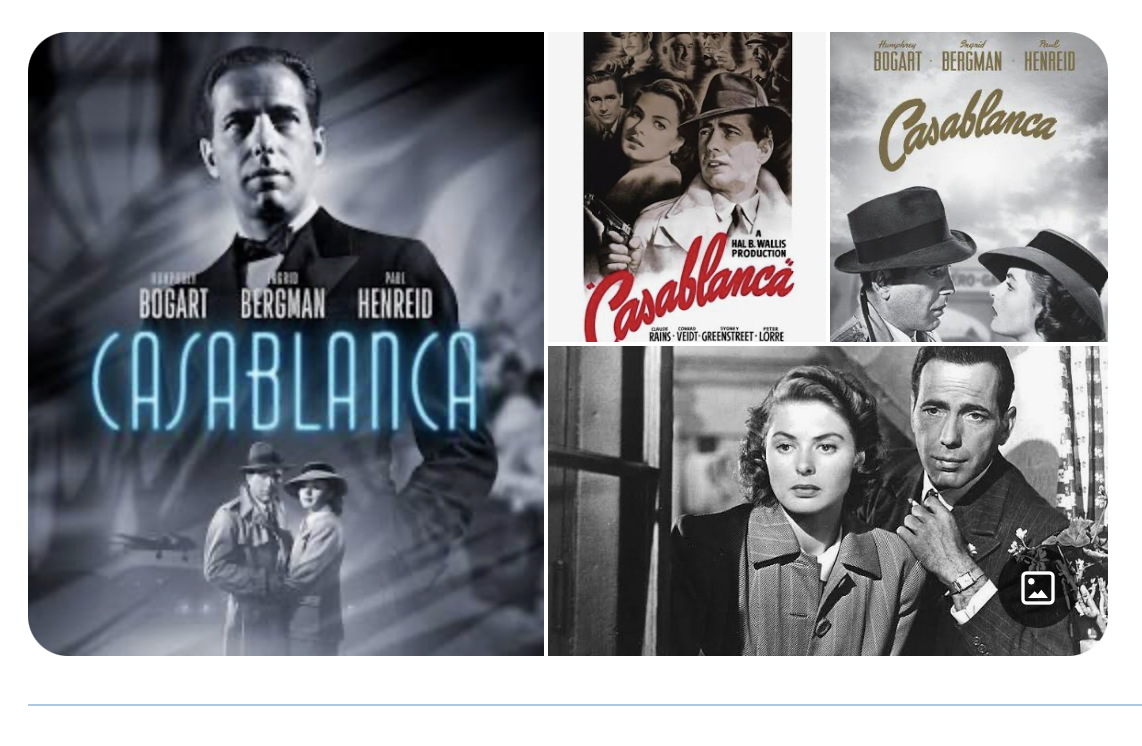We viewed the perennial favorite over two nights for Bastille Day weekend. The story and its presentation hold up well over the years. There is no doubt that the Germans were the bad guys here, even if this were not a propaganda film, which it was. This time, I stepped back and took a historical perspective that was informed by the “Marseillaise” scene.
First, we have lost some of the cultural context of 1940. Today, we see a direct line from Pearl Harbor to Normandy. However, “America First” isolationism was a barrier for the Roosevelt Administration. (For alternate histories, there are Philip K. Dick’s The Man in the High Castle (1962) and Philip Roth’s The Plot Against America (2004).) Given the partition of France and especially the widespread collaboration within Occupied France, it is important to separate French nationalism from French democracy. In the Marseillaise scene, Yvonne shouts “Vive la France! Vive la démocratie!” But today’s acceptance of democratic principles was not easily found in the world of 1940.
 |
| YouTube: Warner Bros. Classics |
In the Minersville School District versus Gobitis 310 US 586, the US Supreme Court ruled that public schools could require the Pledge of Allegiance and the salute to the flag. It is significant that victims of the Nazi holocaust included “Bible students.” As the war developed, the narrative of democracy versus dictatorship crystalized. In 1943, the US Supreme Court reversed itself with West Virginia Board of Education versus Barnette 319 US 624, and supported the right of the individual to refuse to worship the government.
 |
| The Overlook Press, 1973. |
When the viewer meets Richard Blaine, he is playing chess by himself. He is an intelligent, thinking man -- and a loner. Louis Renault claims that Rick is a sentimentalist, pointing out that Rick ran guns to the Spanish Loyalists and to the Ethiopians. "I was paid well both times," Rick insists. Renault counters, "The winning side would have paid you more." Rick demurs. "I'm a poor businessman." In that, we see that Richard Blaine is a practical man whose actions are guided by principles. He also has a bitter sense of humor.
The "Marseilles" scene says even more. Victor Laszlo orders the band to play La Marseilles. The band leader, however, looks to Rick. (As Sasha says in a previous scene, "Yvonne, I love you, but Monsieur Rick, he pays me.") Rick nods. They play. It is Rick's Cafe Americain that the police bust up the next day. Rick takes responsibility for his actions and he literally pays the price for Laszlo's defiance. It is easy to see Laszlo as the brave idealist. I see Laszlo as an irresponsible idealist. When the bar is closed, Rick keeps everyone on full salary. It comes out of his pocket, of course.
 |
| 1 Franc France 1940. 1 Franc Vichy 1942 Morocco 1/2 riyal (5 dirham) AH 1336/AD1918 Morocco 1 Franc AH1339/AD1921 |
The Marseillaise scene (also called “the dual of the anthems”) rested on a lost narrative. The Germans are not singing Deutschland über Alles but Die Wacht am Rhein. That was composed 1840 (poem) and 1854 (music) to solidify Germans across over 20 different polities to defend the Rheinland because in the 200 years between Louis XIV and Napoleon, the river region was politically French though culturally German. In that the city of Strasbourg was iconic. Family names along the Rhein alternated between Brückner and DuPont. The new rallying motto was “Unser Strom nicht unser Grenze.” (Our creek, not our border.)
Another lost narrative centers in the tiny town of Niederwald, Texas, here in Hays County. They say on their city website that the town was named for the low-lying bushy trees here in the Hill Country: nieder = nether; wald = woods. In fact, Niederwald, Texas, was settled between 1877 and 1890 and was more likely named after the Niederwald Memorial in Hesse, built in 1877 and decorated with a goddess Germania, Iron Crosses, a tally of German victories over Napoleon, and the lyrics to Die Wacht am Rhein. (See https://en.wikipedia.org/wiki/Niederwald,_Texas, https://www.tshaonline.org/handbook/entries/niederwald-tx, and https://en.wikipedia.org/wiki/Niederwald_monument
La Marseillaise has nothing to do with democracy and is all about fertilizing the farms with the blood of impure invaders. It got its name from a regiment which sang the song on their entry to Paris, but the song itself was composed in Strasbourg and was titled “Chant de guerre pour l’armée du Rhin.” The event which inspired its composition was France’s war against an alliance of Austria and Prussia. To take sides between France and Germany over the Rheinland is to choose between Poland and the Ukraine over who rules which banks of the Vistula. Nonetheless, we still hate the Nazis because without a doubt they were opposed to everything that defines America.
Previously on Necessary Facts
2LT Frances Y. Slanger American Nightingale
Liza Mundy Breaks the Code and Misses the Message
Building a Team in Fact and Fiction


No comments:
Post a Comment
Note: Only a member of this blog may post a comment.